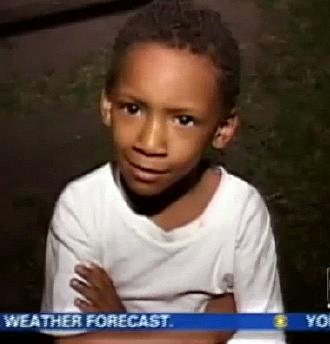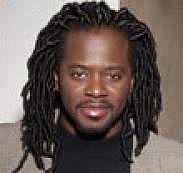Young Guns and Media Images

(Left: Four-Year-Old CBS 2/WBBM Interviewee)
"We have long been worried about the ways in which the media helps perpetuate negative stereotypes of boys and men of color, but this appears to be overtly criminalizing a preschooler," said Dori J. Maynard, President of the Maynard Institute for Journalism Education.
Maynard also noted that the piece lacked generational context, pointing out that many little boys express a desire for guns.
The Maynard Institute's 'Health and the Media' series focuses on changing the way the media reports on boys and men of color. The goal is to end stereotypes that sometimes are perpetuated by the media.
The boy was interviewed shortly after the teenagers were shot and wounded in the Park Manor neighborhood on June 29th.
CBS 2/WBBM television aired the story early the next morning and featured a short clip of the boy, whose name was not released.
CBS 2 anchor Steve Bartelstein said the two teens were standing on the sidewalk when they were shot.
"The male's in good condition while the girl's expected to recover and kids on the street as young as 4 were there to see it all unfold and had disturbing reactions."
Boy: "I'm not scared of nothing."
Reporter: "When you get older are you going to stay away from all these guns?"
Boy: "No."
Reporter: "No? What are you going to do when you get older?"
Boy: "I'm going to have me a gun!"
Bartelstein ended the story saying, "that was scary indeed."
Co-anchor Susan Carlson exclaimed, "hearing that little boy there, wow!"
Shawnelle Richie, director of communications for CBS 2, admits the video should not have aired.
"We made a mistake," she said. "The story only ran once. We immediately took it off and addressed the issue with the producers."
Richie said the station took some unspecified corrective steps against the people who were responsible for editing and writing the story but that action was deemed insufficient by the people who saw the video.
Dr. Gabriel Crenshaw
"The first thing I thought of was where were his parents? Reporters shouldn't be interviewing a four-year-old about something this serious without the parents being there."
Al Tompkins, Senior Faculty for Broadcasting and Online at the Poynter Institute, agrees.
"There is there is a lot to be concerned about here."
Tompkins wrote an article on the ethics of interviewing juveniles for the Radio Television Digital News Association.
"Journalists should exercise special care when interviewing juveniles," he wrote.
"Especially in breaking news situations, juveniles may not be able to recognize the ramifications to themselves or to others of what they say."
The video is dramatic and prompted the anchor to say how scary it was. It clearly leaves the viewer with a negative image, said people who had seen it.
Gabrielle Carteris
Carteris said entertainment shows are supposed to lead the audience down a path, making them assume certain things based on the images created by the script. This video, she said, does the same thing and journalists aren't supposed to do that.
"It's saying that the lesson he's getting from seeing something violent is that he's got to treat it with violence. It's a terrible message. I would be so disappointed if my children saw that."

